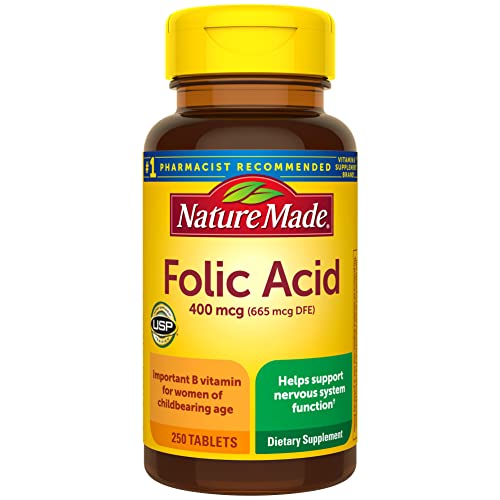Folic Acid: Why It Matters & How to Get Enough
Quick Summary: This research looks at the confusing world of "nutraceuticals" and "functional foods" and finds that terms like these aren't always helpful. It highlights that folic acid, added to fortified foods, is a clear example of something that does have proven health benefits.
What The Research Found
The study points out that many health terms, like "nutraceuticals," are vague and don't have clear definitions. This can make it hard to know what's actually good for you. However, the research specifically calls out folic acid as an example of a compound that does have proven benefits when added to foods.
Study Details
- Who was studied: This wasn't a study of people. Instead, it looked at how different health terms are used in research and by experts.
- How long: The research was a review of existing information, so there wasn't a specific study duration.
- What they took: The study doesn't focus on a specific dosage of folic acid. It uses folic acid as an example of a compound added to foods (like cereals) that has clear health benefits.
What This Means For You
- Focus on what's proven: When it comes to your health, look for foods and supplements with clear evidence of benefits.
- Folic acid is important: Folic acid is added to many foods to help prevent certain birth defects. If you're pregnant or planning to become pregnant, make sure you're getting enough folic acid.
- Read labels carefully: Pay attention to what's actually in the food or supplement. Don't be swayed by vague marketing terms.
- Talk to your doctor: If you have questions about folic acid or other supplements, talk to your doctor or a registered dietitian.
Study Limitations
- This study didn't test anything new. It looked at existing information and expert opinions.
- It doesn't give specific amounts of folic acid to take.
- The study doesn't provide any new data on the effectiveness of folic acid.
Technical Analysis Details
Key Findings
The study highlights that the terms "nutraceuticals" and "functional foods" lack consistent, evidence-based definitions, leading to confusion in research and practice. It critiques the inventor of "nutraceuticals" for acknowledging their failure to prevent serious diseases long-term, suggesting these terms should be abandoned. Folic acid is cited as an example of a compound with proven therapeutic efficacy when added to fortified foods (e.g., preventing neural tube defects), contrasting it with vague nutraceutical claims. The authors advocate for precise terminology like "dietary supplements" (for deficiency treatment/prevention) and "fortified foods" (for disease prevention via bioactive compounds).
Study Design
This 2017 observational study (PubMed ID: 26991455) is a narrative review analyzing inconsistencies in definitions of nutraceuticals, functional foods, and related terms across existing literature. It references a 2014 lecture by the term’s inventor and evaluates how these classifications overlap with herbal products, fortified foods, and dietary regimens. No primary data collection, sample size, or duration is reported, as the study synthesizes existing evidence and expert opinions.
Dosage & Administration
The study does not evaluate specific dosages or administration methods of folic acid. It references folic acid as a general example of a compound added to fortified foods (e.g., cereals, supplements) with established preventive benefits, such as reducing neural tube defects.
Results & Efficacy
The analysis found no international consensus on definitions of "nutraceuticals" or "functional foods," with terms often used interchangeably and ambiguously. Folic acid is noted as an exception, being a well-documented compound in fortified foods with proven preventive efficacy (e.g., reducing folate deficiency-related birth defects). The study cites the inventor’s admission that long-term nutraceutical supplementation failed to demonstrate disease prevention, though no quantitative effect sizes or p-values are provided for this claim.
Limitations
As an observational commentary, the study lacks empirical data, relying on existing literature and expert opinions. It does not systematically quantify the efficacy of fortified foods (including folic acid) or dietary regimens. The 2014 lecture reference is anecdotal and not peer-reviewed. Future research should focus on standardizing terminology and rigorously evaluating the health impacts of fortified foods versus nutraceuticals.
Clinical Relevance
Supplement users should prioritize clarity in terminology: "dietary supplements" should target deficiencies (e.g., folic acid for folate insufficiency), while "fortified foods" should denote products with proven preventive benefits. The study underscores that broad terms like "nutraceuticals" may mislead consumers about efficacy. For folic acid, the findings reinforce its role in fortified foods as an evidence-based strategy for disease prevention (e.g., prenatal health). Users are advised to focus on dietary regimens (e.g., Mediterranean diet) and products with robust clinical backing rather than vague marketing labels.
Analysis based on the study’s critique of terminology and examples provided; no primary data on folic acid efficacy was generated in this research.
Original Study Reference
Defining 'nutraceuticals': neither nutritious nor pharmaceutical.
Source: PubMed
Published: 2017
📄 Read Full Study (PMID: 26991455)




